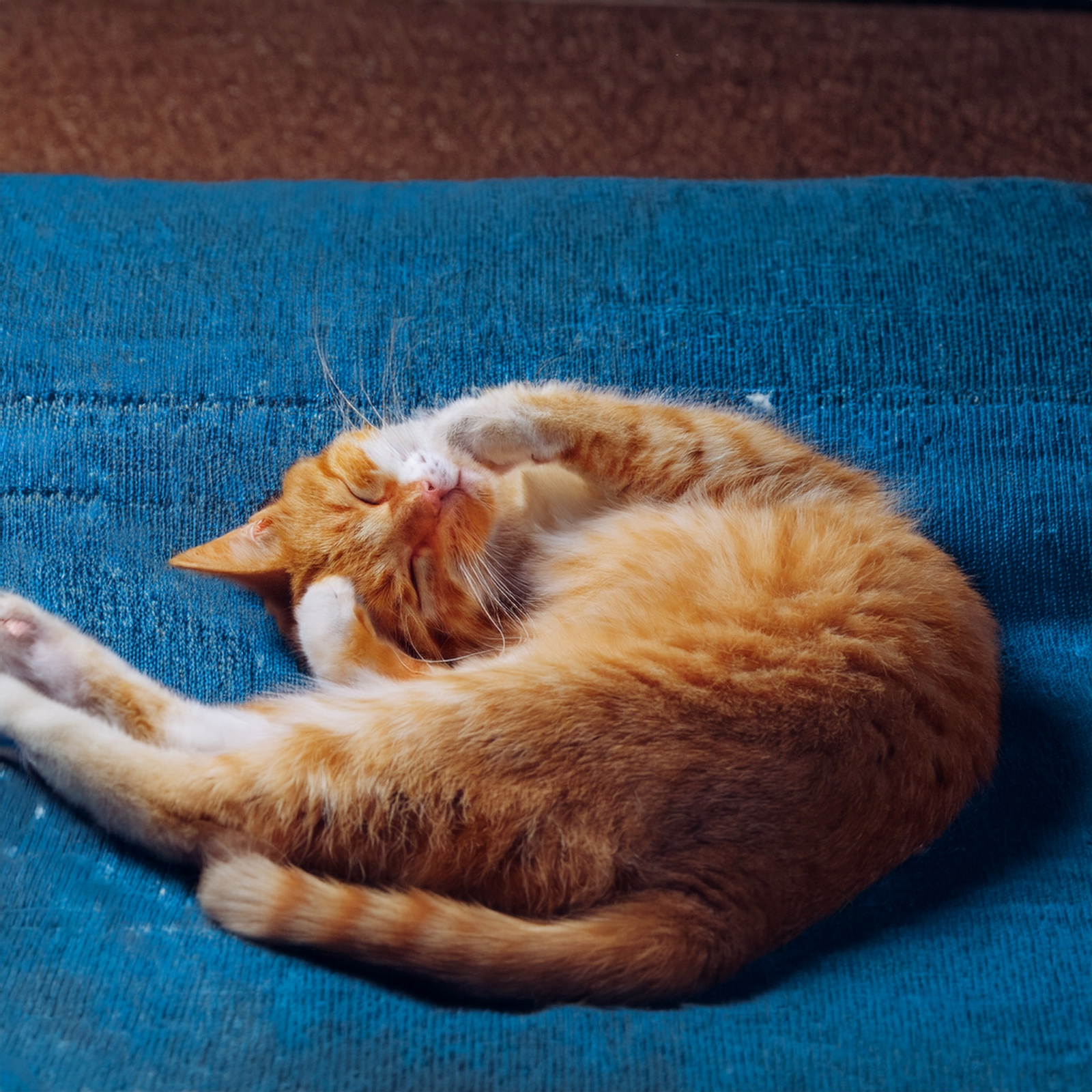
Blog-Behavior
Cats are not like dogs when it comes to being social. Dogs often want lots of attention and love to be around people all the time. Cats are more independent and can sometimes seem a little distant. But they still need time with you—they just choose when and how. The tricky part is knowing if your cat is upset and wants space, if they simply didn’t realize you wanted their attention, or if they’re just ignoring you.
Let’s take a look at some possible reasons.
-
Your cat wants alone time
Most of the time, it’s simple—your cat just isn’t in the mood.
Cats are independent. If they don’t want pets or treats, they’ll ignore you and keep doing what they enjoy—like napping or lounging.
Don’t take it personally. Just give them space. They’ll come to you when they’re ready for love and attention.

-
Older cats may not notice you
Older cats might not hear or see well. They may not be ignoring you, just unaware. Move slowly so they notice. If it happens often, check with a vet. If they seem weak or don’t respond at all, call your vet right away.
-
Your cat may feel sick
Sick cats often hide or act distant. Watch for signs like eating less, drinking more, or acting different. If you notice changes, see your vet quickly.

-
Your cat might be scared
Cats may avoid you if they feel threatened—by yelling, punishment, or even an accident like stepping on them. If they hide or run, give space and later rebuild trust with gentle pets or treats. Never punish a cat.
-
Your cat’s personality
Some cats are just naturally more reserved. They don’t often ask for cuddles or attention, not because they don’t like you, but simply because that’s their personality. Your cat might just be a little “cool” and independent.

How to tell if your cat heard you
Even if your cat doesn’t look at you, they may still hear you. Watch their body:
-
Tail flicks or twitches a little → they noticed.
-
Ears turn toward your voice.
-
Head lifts or they pause what they’re doing.
A small tail movement is often their quiet way of saying, “Yes, I heard you.”
References
Dr. Sandra Mitchell
Catlien
-

The Language of Cat Tails
Regular price £0.00 GBPSale price £0.00 GBP Regular priceitem / per -

Why Does My Cat Try to Bury Its Food?
Regular price £0.00 GBPSale price £0.00 GBP Regular priceitem / per -

Why Does My Pet Follow Me to the Loo
Regular price £0.00 GBPSale price £0.00 GBP Regular priceitem / per -

Why Do Cats Love Boxes?
Regular price £0.00 GBPSale price £0.00 GBP Regular priceitem / per
-

7 Signs of a Cat Allergic Reaction
Regular price £0.00 GBPSale price £0.00 GBP Regular priceitem / per -

How To Prevent Cat Allergic Reactions
Regular price £0.00 GBPSale price £0.00 GBP Regular priceitem / per
-

Can Cats Eat Berries?
Regular price £0.00 GBPSale price £0.00 GBP Regular priceitem / per -

8 Things Cats Should Never Eat
Regular price £0.00 GBPSale price £0.00 GBP Regular priceitem / per -

Is Pumpkin Good for Cats?
Regular price £0.00 GBPSale price £0.00 GBP Regular priceitem / per -

Should You Share Ham with Your Cat?
Regular price £0.00 GBPSale price £0.00 GBP Regular priceitem / per
-

The Language of Cat Tails
Regular price £0.00 GBPSale price £0.00 GBP Regular priceitem / per -

Why Does My Cat Try to Bury Its Food?
Regular price £0.00 GBPSale price £0.00 GBP Regular priceitem / per -

Why Does My Pet Follow Me to the Loo
Regular price £0.00 GBPSale price £0.00 GBP Regular priceitem / per -

Why Do Cats Love Boxes?
Regular price £0.00 GBPSale price £0.00 GBP Regular priceitem / per
-

My Cat Won’t Drink Water—What Should I Do?
Regular price £0.00 GBPSale price £0.00 GBP Regular priceitem / per -

Cat Owners Must Know: Safe Alone Time for Cats
Regular price £0.00 GBPSale price £0.00 GBP Regular priceitem / per -

Rather Starve Than Eat? 3 Reasons Your Cat Is Picky About Food
Regular price £0.00 GBPSale price £0.00 GBP Regular priceitem / per -

4 Tips to Improve Your Cat’s Picky Eating Habits
Regular price £0.00 GBPSale price £0.00 GBP Regular priceitem / per













